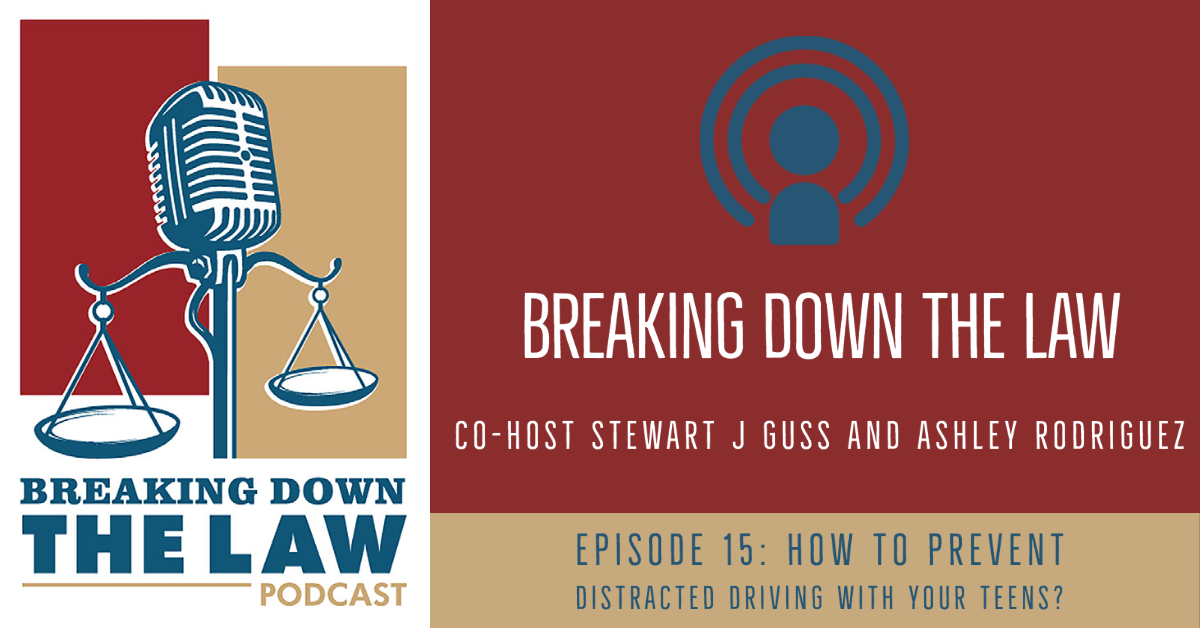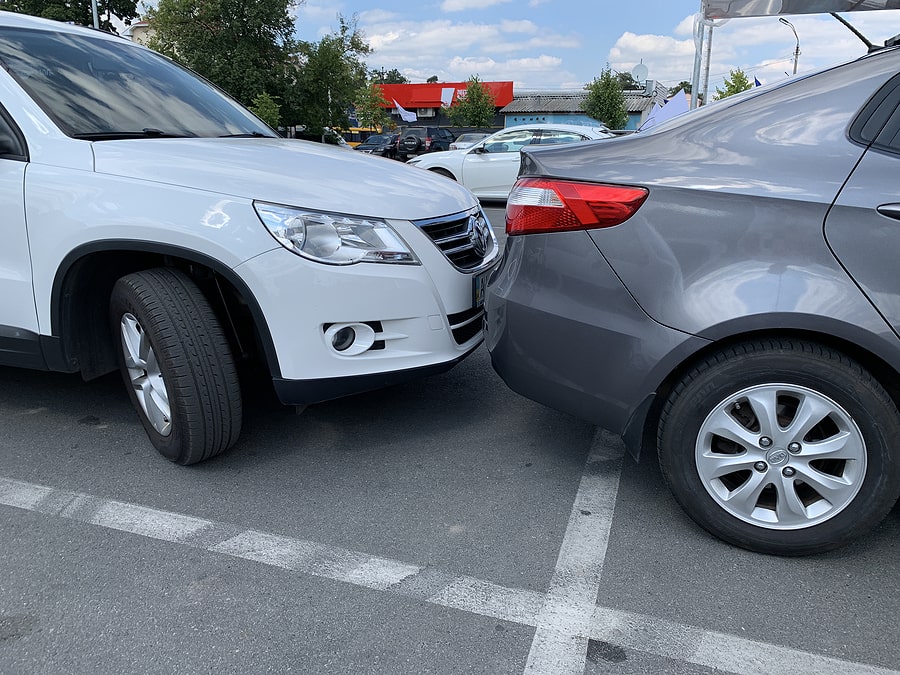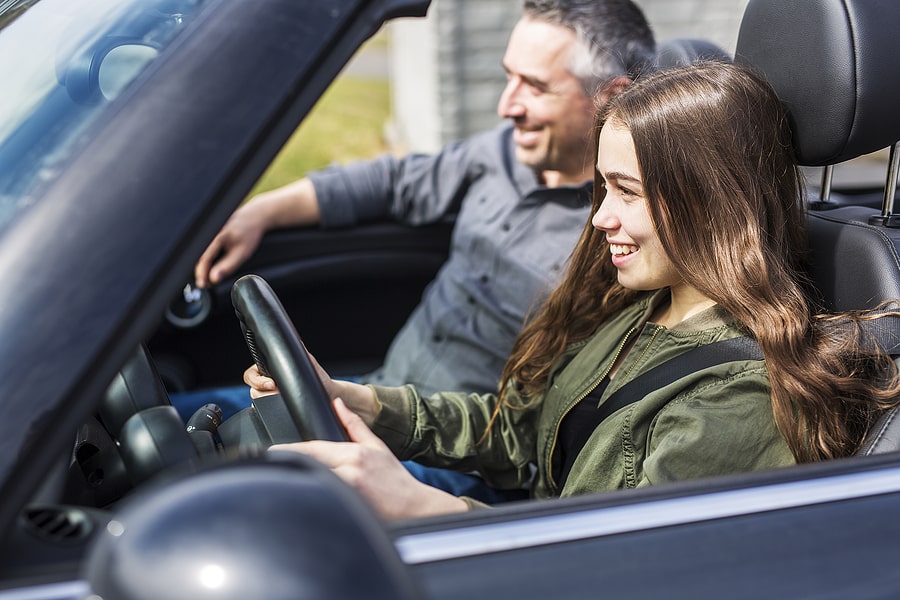For this episode of the Breaking Down The Law Podcast we’re joined by Brantley Sasseen, a Personal Injury Lawyer. He’s joined by Breaking Down The Law Podcast host, Ashley Rodriguez
During today’s episode we’ll be discussing the topics and conversations you should have with your teens about distracted driving.
Why is distracted driving a problem for teen drivers?
How many teens are involved in a fatal car accident?
What are the consequences of teen distracted driving?
What are other distractions besides the cell phone?
Check out this resources for more information https://www.enddd.org/
Tune in to hear about the one surprising statistic that has to do with teen males. Brantley and Ashley discuss these points and more, so we hope you’ll join us for this episode!
Stay tuned for the next installment of the Breaking Down The Law Podcast with Stewart J Guss and Ashley Rodriguez!
Contact Us: 281-783-3934 or [email protected]
If you want to subscribe to our podcasts on your favorite podcasts player click here for all the links to each one!
Transcript [This transcript was created using an automated transcription service and may contain errors]
Intro: Breaking down the law apodcast hosted by attorneys and legal specialists discussing everyday law and how it affects regular people, regular people. Let’s break down the law with our host, Stewart Guss and Ashley Rodriguez. They have the inside scoop on everything legal and newsworthy.
Ashley Rodriguez: Welcome to breaking down the wall this week is National teen Safety Week, and parents should have conversations with their teens about the important rules that they need to follow to stay safe behind the wheel of a motor vehicle. We have a special guest with us today to help us break down some of those conversation topics to have with your teenagers.
Brantley Sasseen: Hey, this is Bradley sassy. And I’m a senior executive attorney here with us Stewart J Guss and Associates.
Ashley Rodriguez: Awesome. Brantley, we’re so glad to have you today. So let’s just dive right into it. Why is distracted driving a problem for teen drivers?
Brantley Sasseen: Yeah, so I think most people could probably guess the most obvious answer to that question. And that just really has to do with the big culture shift that we’ve experienced in the last 10 to 15 years. Namely that cell phones are now an ever present part of everyone’s life, we all have them, including all of the teenagers out there these days, much more so than than when I was a teenager. It’s just one of those things where that has really changed the way that we interact just in our normal everyday lives. And certainly that carries over to when we’re driving our vehicles as well. It creates a situation where there are more stimuli constantly coming at us there are more distractions than ever before. And teen drivers are especially susceptible to those stimuli. And to those distractions, you know, when you’re a team, you think you’re invincible, for sure you have less experience as a driver. So whereas it’s never safe for anyone to really be distracted while driving, perhaps someone who has been driving longer is at least able to better account for variables that are out there on the road. Whereas you know, a teen driver or less experienced driver is not going to be able to account for those things. And also, I think, in general, there is less awareness in teens of the consequences of distracted driving, and really how it can impact not only their lives, but the lives of others out there on the road, certainly to the extent that that distracted driving causes a crash. The consequences typically are and certainly can be severe for everybody, both the teen drivers and the other drivers out there on the road. And just kind of by way of reference, to add a little bit of context to that general statement is the fact that driver distraction is responsible for more than 58% of all motor vehicle crashes. That’s a statistic that I certainly found surprising. You might not expect it to be that disparate with other factors or other causes, but specifically 14 crashes. So 58% on the vast majority of all, crashes are caused by distracted driving. And there were some other statistics that I found pretty relevant in that context as well. 78% of all teens have cell phones these days, and a large percent of teens do all or most of their internet browsing, and they’re surfing and whatnot, all of that activity happens on their cell phones. So even more so than it used to be we’re very much tied to where the majority of that activity, especially for teens, happens on that cell phone, which is something that’s constantly with them, including when they’re in the car,
Ashley Rodriguez: especially with the social media and notifications. And then now there’s so many different challenges like do this in your car do that. Yeah, and teens just do it without thinking because everybody else is doing it.
Brantley Sasseen: 100% 100%.
Ashley Rodriguez: So how many teen drivers die from distracted driving?
Brantley Sasseen: Some of the statistics are a little hard to pare down exactly. But about 3500 people in 2015 reporting that was done that were in crashes were killed and those involving distracted drivers. Specifically, distracted driving crashes generally are under reported. So most likely, the statistics are actually a bit higher. And what we’ve been able to find out and what the various administrations have been able to put together in some studies. cell phone use alone accounted for about 27% of all car crashes in 2015. And the fatal crash rate so cases in which a fatality happens for teens is about three times higher than for all others. So again, the super risk is really for the team distracted drivers. They’re much more likely to be in a severe crash, resulting in a fatality than than other drivers out there on the road. In fact, motor vehicle incidents in general are the leading cause of death for teenagers in the United States.
Ashley Rodriguez: Experience behind the wheel and like even from those statistics, like you said, we have more social media, and more things like that, and definitely a hard topic to discuss with your teens, but nobody wants to be in that situation.
Brantley Sasseen: certainly. And I think the important thing, there are some of those statistics, just being aware of any activity in which teens typically engage driving is the single number one cause of death for them. That should be pretty eye popping and I think even for a teenager should be eye opening in terms of the risk involved.
Ashley Rodriguez: Yeah, for parents to share that with their teens and help them realize they’re not as invincible as they think. So how would you teach teens about the consequences of distracted driving?
Brantley Sasseen: Yeah, this is a tough question, for sure. Because certainly, I think any parent or really anyone trying to engage a teen is going to be met with some of the eye rolling and they you know that the typical?
Ashley Rodriguez: I know, I know,
Brantley Sasseen: right, exactly. But there are some great resources out there and some great programs out there that I would encourage anybody to consider. One that I have personally been able to witness is through the people who conduct a website called endd .org and distracteddri ing.org. This is actually an att rney who practices and who los his daughter, when she was a t enager involved in a crash, aga n, involving distracted dri ing. And he’s really made a poi t to develop this program and educate teens and others abo t some of the risks that are inv lved. And it’s a very imp ctful program. I think tha ‘s key, when you’re speaking wit folks who maybe have exp rienced an incident like tha , personally, it’s much more res nant with everybody, inc uding teens, then it might be therwise. So I would enc urage anybody to check out tha website, anybody looking for resources to visit his web ite, he’s got a lot of great inf rmation on there. He also con ucts in person programs, whe e he’ll go into a middle sch ol or high school and act ally do a full scale pre entation to classes, or may e even part of a larger con erence, you know, whole sch ol, depending upon the size and and he’s done many thousands of hose. At this point in the e, he actually educates oth r attorneys about being able to o into schools and do some of hose programs. So certainly pro rams like that, I think can hav a big impact. There have bee some studies done, of cou se, about how to engage and how to motivate teens not to eng ge in some of these risky beh viors not to engage in dis racted driving. Some sta istics on that are that tee s are actually more open to giv ng up reading and sending tex messages. You know, as many as 0 95% of all teens indicate a w llingness, like, yeah, I can giv up texting while driving, as Yeah, I think there’s some apps out there that can kind of block pposed to things like nav gation in the car or music app ications, they’re less lik ly to get to want to give tho e things up. So I think tha ‘s irrelevant. financial inc ntives appear to be the best str tegy for emerging teens Sur rise, surprise, to put away the r phones, while driving, as man as 75% of teens that were sur eyed in a particular study ind cated that they were open to wha are called gaming framed inc ntives. So that specifically fin ncial incentives, you know, thi gs like insurance discounts, par ntal and peer involvement, aut mated response systems, you kno , also, I think, all fall int categories of potential ass ts to deploy, if you’re try ng to engage your team or try ng to prevent their dis racted driving. That being sai , 60% of teens also don’t wan their parents to be able to mon tor their phone usage while beh nd the wheel. So it takes a lit le bit of creativity to do it n a manner where they’re not goi g to be put off, they’re not gon a want to try to find a way aro nd some of those things, but all still preventing the dis racted driving. it and then be like, you can block it, or I can block it. Right. Exactly. Exactly. Yeah, there was an association that governors Highway Safety Association, and they have a, it’s called distracted and dangerous is the name of their study or their report. And it also has a lot of good resources. Again, as you mentioned, applications on the phone can do a lot of things just you know, even just with a texting, you can have it set to where if you’re moving, if you’re over a certain, you know, miles per hour, it’s automatically going to respond and say, Hey, I’m driving, I can’t take a text right now. Those are simple things. I think, things that anybody would typically be open to. There are also some legislative efforts. So many of the states at this point have passed laws
Ashley Rodriguez: for no texting and driving, right?
Brantley Sasseen: No texting and driving and in many cases, not even allowing you to be on your cell phone, you know, just for a phone call while you’re driving, at least not without the use of some sort of hands free device. And those have shown some success and helping to prevent So, of course, you know, making sure that your teens are educated about those potential consequences. I think if they’re, you know, working to pay for their own car insurance or pay for their own car and they just Know that if they get a ticket for driving while being on the cell phone that’s coming out of those funds, that’s, again, a negative financial incentive, but an incentive nonetheless, to help prevent that behavior,
Ashley Rodriguez: Are there other team driving distractions besides the cell phone?
Brantley Sasseen: Most definitely. So some of the best examples I could give would be having multiple passengers in the vehicle, when a team is driving, again, the more people you have in there, especially if these are pure passengers, you know, the more attentive they’re going to be to turn the head, talk to the other passengers that are there in the car, or being even encouraged by those passengers to engage in some behavior that is perhaps not focused on driving and the task at hand. So that’s a big one.
Ashley Rodriguez: Even as an adult, I easily get distracted by the kids in the car or someone else in the car.
Brantley Sasseen: It’s so easy. Yeah. And I’ve found myself doing it, I’ve gotten onto my family for doing it, it’s so easy to, you know, someone says something and you want to hear what they say, or you want to be engaged with them. It’s just human nature, we’re taught to engage with someone that’s speaking to us, but it is quite dangerous to do. So while you’re driving, it should certainly be discouraged. Nighttime driving is another big one. Again, the less experience that a new driver has, it’s only compounded by the problems that can be associated with nighttime driving. So I would say, trying to avoid having your teenager on the road at night, if at all possible. And if they are trying to make sure that they have an adult or a more experienced driver in the vehicle with them to help, you know, keep an eye out and help account for other factors that may be on the road at night that aren’t during the day.
Ashley Rodriguez: And then just matter of fact, of getting tired and falling asleep. driving at night,
Brantley Sasseen: of course, yeah, they typically categorize distractions or impairments into three different categories. One is manual, one is visual, and one is cognitive. So manual is literally where you’re moving your hands away from the wheel, texting is a perfect example of that. Visual is where the focus of your eyes is not on the road. So even something as simple as looking down to change the radio or looking down at the navigation, anything that’s taking your eyes off of the road. And then cognitive is just where your mind is not focused on the task of driving. So even if you’re using a hands free device, even if you’re just talking to somebody on the phone while driving, it takes some level of you know, attention, at least cognitively away from the task of driving. And that is more impairing than people think In fact, One study showed that people are as impaired when they drive and talk on a cell phone as they are when they drive intoxicated at the legal blood alcohol limit of point 08 percent Wow, just just talking yet just having a call going on while you’re driving. So it is more impairing. But I think most people realize, and certainly any of those things are gonna be bigger risks for teens,
Ashley Rodriguez: especially if you’re having like, I guess, an emotional conversation. And teens are so moody from day to day of those emotions and feeling like that you can easily just be zoned out
Brantley Sasseen: and yeah, hundred percent. And texting, again, is probably the best example because it involves all three types of those distractions, you’ve taken your hands off the wheel, your eyes are off the wheel, and your mind is off the task of driving. So it’s kind of a triple threat in that context. So would you say texting is probably the number one distractions? Absolutely, it’s got to be because it involves such a high level of impairment. And you can go find the statistics pretty easily. But it’s something like about 23 times more likely to involve someone in a crash, if they’re engaging in specifically texting while driving. So it seems to be kind of number one on everybody’s list for the most riskiest activity that you can engage in while driving. They say on average sending or even just reading a text message takes your eyes off the road for about five seconds. And that is actually long enough to cover a football field while driving if you go into the five miles an hour. So you consider how far that is how much can happen in that link, if you’re driving at that rate, and pretty clear how risky that is. One thing that I found interesting is that there’s apparently a higher prevalence in males of this type of behavior in this type of activity. So don’t think that it’s just the girls out there, you know, parents make sure you’re talking to your sons about this.
Ashley Rodriguez: I thought girls are way more
Brantley Sasseen: surprised me as well. It definitely surprised me as well. And it shows up in some of the other statistics in that teen males have about a two times greater likelihood of being involved in a fatal crash. At least if the statistics bear that out. And there may be some correlation but not causation there. But but certainly statistics show that more males by about a two to one ratio are involved in fatal crashes. So other than that, I would say some of the more risky things and this is just inherent to teen drivers is based upon their lack of experience. So their lack of ability to do the type of road scanning that’s necessary to identify
Ashley Rodriguez: Being that defensive driver,
Brantley Sasseen: right. So the more education that you can do, the more training the more time you can spend in the car with them. Helping them with some of those things is better. And then speeding is probably your other biggest factor involved those each account for about 21% for the most common issues for teen drivers.
Ashley Rodriguez: Yeah, I think as a teen, like you don’t realize like someone can just fly out of that truck and come out or somebody could dart across or slam on the brakes, and you just don’t realize because they don’t have that experience,
Brantley Sasseen: right. And there are a million things that can happen in a split second, when you’re out there on the road. And pet just comes with experience, being aware and knowing what to look out for.
Ashley Rodriguez: So why do you think teens are more affected by distracted driving?
Brantley Sasseen: So other than some of the reasons that we’ve already talked about? It’s not the most obvious question to answer. But one thing that I think is relevant is that most people, and this is not just teens, but just most drivers generally, recognize that distracted driving presents a significant risk when you’re in the vehicle. And even most will admit that it’s unacceptable for someone to be texting or emailing or doing these activities bought while driving. However, still more than a third of all drivers, not just team drivers. But all drivers admit to having engaged in one of these activities reading or sending a text while driving or sending a reading an email while driving. And you can understand why There’s more pressure, certainly for us in our jobs is wherever connected with email and everything else. And most people feel more compelled to respond to a call or a text or an email from their job while driving. But teens who have parents or others in their family who drive distracted, are two to four times more likely to also do so. So it’s not just that it’s teens is that you know that the teens have learned they’re seeing you know what’s going on, and everyone who’s out there driving probably engages in distracted driving more than they ought to. And that invariably filters down to the teens as they start to drive.
Ashley Rodriguez: Maybe some people have learned their lesson because they’ve gotten an accident because of distracted driving. So maybe that plays a little bit. But
Brantley Sasseen: yeah, absolutely. And again, I think parents expected to talk and reach their teens, while they’re on the phone even is something that can hurt, right? You know, that’s why they’re seeing has a cell phone because they want to be able to reach them, they want to be able to know where they are. But even that can contribute to the problem because you’re calling your attention your your team, they’re gonna feel more compelled to answer that phone, even if they’re driving. So all of those little things. And I think just having a heightened awareness about all of those factors, all of those things contributes to why teens may be more affected by distracted driving.
Ashley Rodriguez: Yeah, and parents can even use a GPS app. So that way they can know when their kids are on the road, which is good. So then they don’t call them and distract them while they’re driving. But also, most apps will notify you if there is a car accident, so then you can go find a child,
Brantley Sasseen: right, you can know what’s going on. And that’s the great thing about the technology that we have is it doesn’t enable us to find ways around some of those behaviors that might otherwise cause distracted driving.
Ashley Rodriguez: Is there anything else you think we should encourage parents to do or know about?
Brantley Sasseen: No, I would just again, reiterate that there are a lot of great resources out there on the internet, I would start with a place like in distracted driving and it’s got more links than you could get two and a night for sure. And just the more you educate yourself, the more proactive You are the better. So I would just reiterate and re encourage everybody to take those actions.
Ashley Rodriguez: All right, well, thank you for breaking down the law with us and call us anytime for a free case evaluation to 281 783 3934





